Are you torn between investing in a mini fridge or a wine cooler? Choosing the right cooling appliance for your needs can be a daunting task. Both options have their unique features and benefits, but understanding the differences is crucial to ensure the proper storage of your beverages.
In this comprehensive guide, we will delve into the distinctions between mini fridges and wine coolers, helping you make an informed decision and preserve the quality of your drinks.
Understanding the Basics
Before we dive into the details, let's first establish a clear understanding of what a mini refrigerator and a wine cooler are.
Mini Fridge
A mini refrigerator, also known as a compact refrigerator, is a small and portable refrigeration unit primarily used to store beverages and snacks.
It is commonly found in dormitories, offices, bedrooms, and small kitchen spaces. Mini fridges come in various sizes and can accommodate a wide range of perishable items, providing convenience and flexibility.
Wine Cooler
On the other hand, a wine cooler, often referred to as a wine refrigerator, is specifically designed to store wine bottles.
Unlike a mini fridge, a wine cooler offers precise temperature control and humidity levels optimized for preserving the taste, aroma, and quality of wine.
It provides a climate-controlled environment that ensures the ideal conditions for wine storage.
Now that we have a clear distinction between the two, let's explore the key factors that differentiate mini fridges from wine coolers.
Temperature Control: Preserving the Perfect Chill
One of the most crucial aspects of beverage storage is maintaining the optimal temperature. Both mini fridges and wine coolers have temperature control capabilities, but there are significant differences in the temperature ranges they offer.
Mini Refrigerators
A mini refrigerator typically allows you to adjust the internal temperature using a simple dial. However, the temperature range may not be suitable for aging wine.
Mini refrigerators are designed to cool beverages and snacks quickly, with temperatures ranging from 35°F to 42°F (1.7°C to 5.6°C).
While this range is suitable for most perishable items, it is too cold for wine storage and can negatively impact its taste and aroma over time.
Wine Cooler
Wine fridges, on the other hand, provide precise temperature control specifically tailored for wine storage. The temperature range in a wine cooler typically falls between 45°F and 65°F (7°C and 18°C), depending on the specific model.
This range ensures that your wine is stored at the ideal temperature, allowing it to age gracefully and maintain its intended qualities.
Humidity Control: Protecting Wine's Integrity
In addition to temperature control, humidity plays a vital role in preserving the quality of wine.
Proper humidity levels prevent the cork from drying out and oxidation from occurring. Let's explore how mini fridges and wine fridges differ in terms of humidity control.
Mini Refrigerators
Mini refrigerators generally do not offer humidity control features. They are designed to extract humidity from the air, keeping perishable items dry.
The average humidity level in a mini refrigerator is around 65%, which is not conducive to proper wine storage.
The lack of humidity control can lead to dried-out corks and compromised wine quality.
Wine Cooler
Wine fridges are specifically engineered to maintain humidity levels suitable for wine storage.
They typically offer humidity control mechanisms that keep the humidity between 50% and 70%, creating an ideal environment for wine bottles.
This feature ensures that the corks remain moist, preventing oxidation and preserving the wine's integrity.
Storage Capacity and Shelving Options: Organizing Your Collection
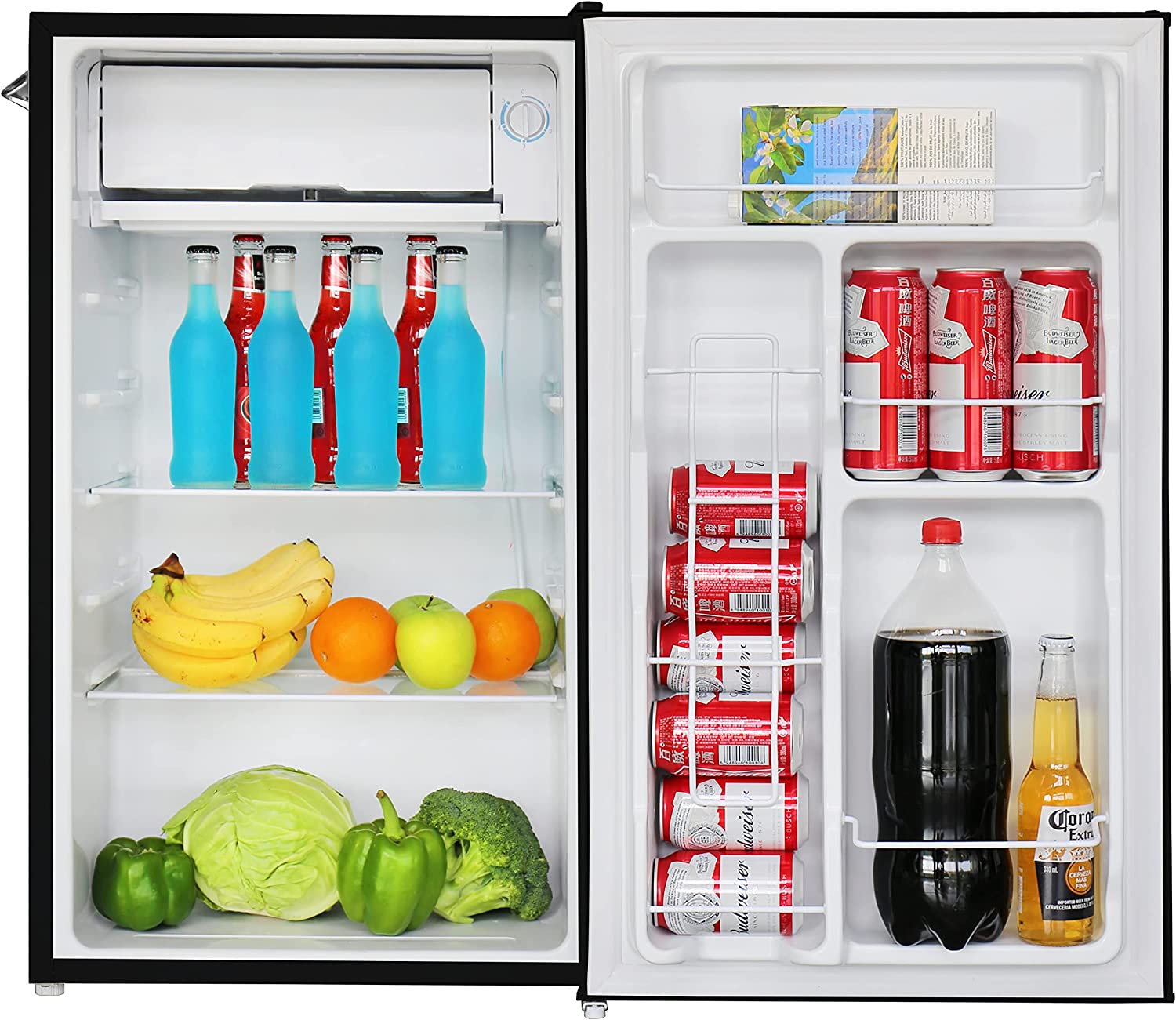
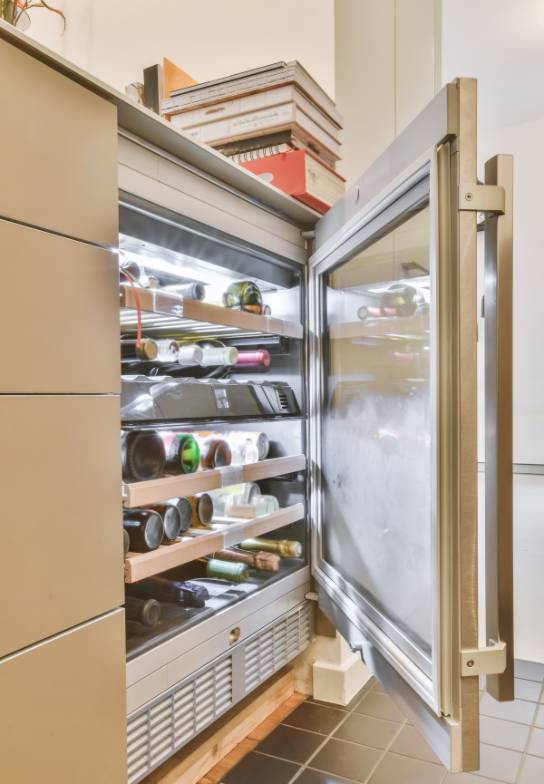
Another crucial consideration when choosing between a mini refrigerator and a wine cooler is the storage capacity and shelving options they provide. Let's take a closer look at how these two appliances differ in terms of storage capabilities.
Mini Refrigerators
Mini fridges come in various sizes, ranging from compact units with limited storage capacity to larger models that can accommodate more items.
However, the shelving arrangement in mini refrigerators is typically not optimized for wine bottles. This can limit the storage space available for wine and make it challenging to organize and locate specific bottles.
Wine Cooler
Wine coolers are purpose-built to accommodate wine bottles efficiently. They feature specially designed horizontal shelves or racks that can securely hold wine bottles.
Many wine fridges also offer removable or adjustable shelves to accommodate bottles of varying heights. This organized storage system ensures that your wine collection is neatly arranged and easily accessible.
UV Protection: Shielding Wine from Harmful Light
Exposure to light, especially ultraviolet (UV) rays, can have a detrimental impact on wine quality. Let's explore how mini fridges and wine fridges differ in terms of UV protection.
Mini Fridge
Mini refrigerators typically do not have UV-protected or tinted glass doors. This means that they do not provide adequate protection against UV rays. Extended exposure to light can result in the degradation of wine's flavor, aroma, and overall quality.
Wine Cooler
Wine coolers are equipped with UV-protected or tinted glass doors to shield wine bottles from harmful light. This feature prevents UV rays from penetrating the cooler and maintains the wine's pristine condition. By minimizing light exposure, wine coolers ensure that your wine retains its intended characteristics over time.
Price Range: Considering Your Budget
Cost is always a significant factor when making any purchase. Let's explore how the price ranges of mini refrigerators and wine coolers compare.
Mini Fridge
Mini refrigerators are generally more affordable compared to wine coolers. The price range for mini refrigerators can vary depending on the size and features, but they typically range from $100 to $500.
The affordability of mini refrigerators makes them an attractive option for those on a tight budget.
Wine Fridge
Wine coolers, on the other hand, are often priced higher than mini refrigerators. The price range for wine coolers can vary significantly depending on the size, capacity, and features.
Entry-level wine coolers start around $200 and can go up to several thousand dollars for larger, high-end models. The cost of wine coolers reflects the specialized features and technologies required for proper wine storage.
Can a Mini Fridge Substitute a Wine Cooler?
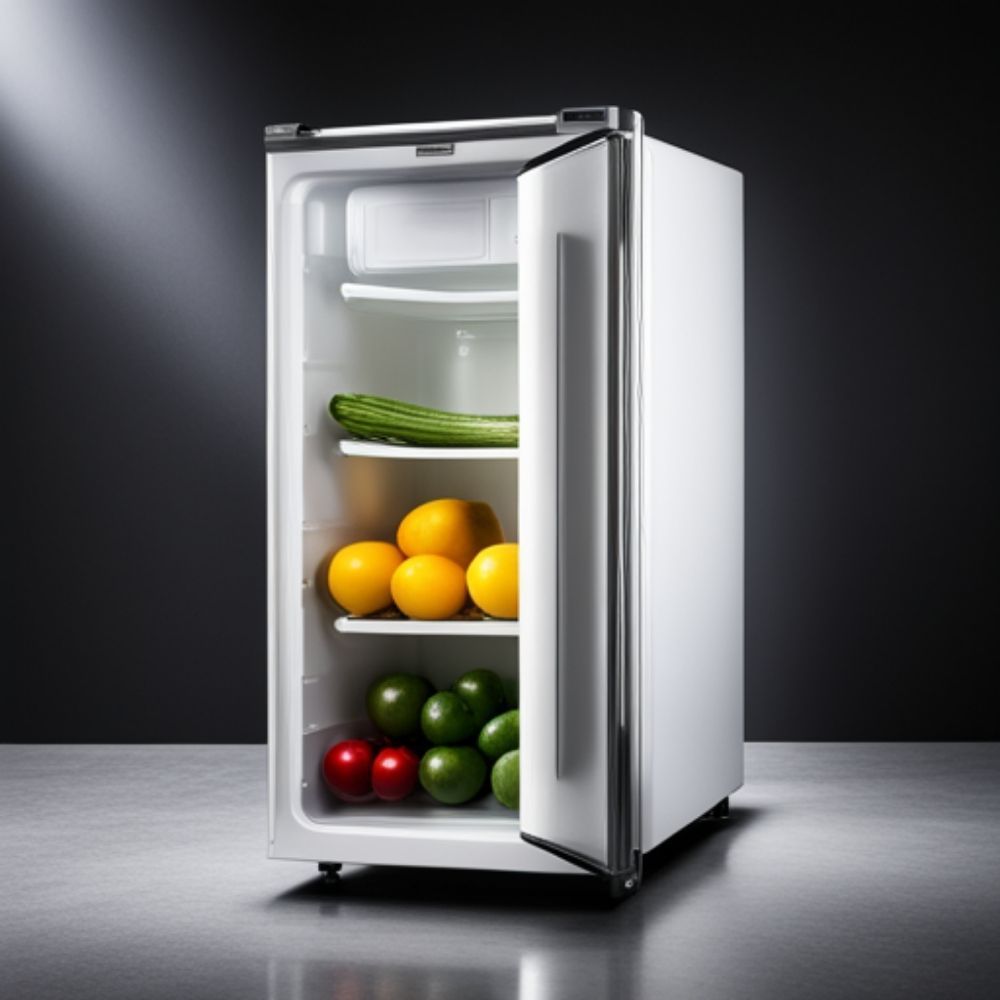
While mini refrigerators can provide basic cooling capabilities, they are not ideal substitutes for wine coolers when it comes to storing wine. Here's why:
Temperature Range
As mentioned earlier, mini refrigerators operate at temperatures that are too cold for proper wine storage. The temperature swings in mini fridges can negatively impact the taste, aroma, and aging potential of wine.
Humidity Control
Mini fridges lack humidity control features, which are essential for preserving the integrity of wine corks and preventing oxidation. Without proper humidity levels, wine stored in a mini refrigerator may experience quality degradation over time.
UV Protection
Mini fridges do not offer UV protection, exposing wine bottles to harmful light that can impact their quality and taste.
While a mini fridge may be suitable for short-term storage of beverages and snacks, it is not designed to provide the precise temperature control, humidity regulation, and UV protection necessary for long-term wine storage.
If you have a valuable wine collection or are serious about preserving the quality of your wine, investing in a wine fridge is highly recommended.
Making the Right Choice: Factors to Consider
Now that we have explored the key differences between mini refrigerators and wine coolers, let's summarize the factors you should consider when making your decision:
Storage Needs
Evaluate the size of your beverage collection and determine whether a mini fridge or a wine cooler can accommodate your storage requirements.
Temperature Control
Consider the importance of precise temperature control for your beverages. If you primarily store wine, a wine cooler's temperature range is crucial for aging and preserving its qualities.
Humidity Control
Assess the need for humidity control to maintain the integrity of wine corks and prevent oxidation. Wine coolers provide the ideal humidity levels for wine storage.
UV Protection
Determine the significance of protecting your wine from harmful UV rays. Wine coolers offer UV-protected or tinted glass doors, ensuring the preservation of the wine's quality.
Budget
Consider your budget and weigh the cost of a wine cooler against the affordability of a mini fridge.
Space Availability
Evaluate the available space in your kitchen or living area to determine whether a mini fridge or a wine cooler can fit comfortably.
By carefully considering these factors, you can make an informed decision and choose the cooling appliance that best suits your needs.
Summary
When it comes to storing beverages, whether it's wine or a variety of drinks, selecting the right cooling appliance is essential. While mini refrigerators and wine coolers may seem similar, they serve distinct purposes.
Mini refrigerators are versatile and budget-friendly options for short-term storage, while wine coolers provide the optimal conditions necessary for long-term wine storage.
By understanding the differences in temperature control, humidity regulation, storage capacity, UV protection, and price range, you can make a well-informed decision.
Whether you opt for a mini fridge or a wine cooler, always prioritize the preservation of your beverages' quality and enjoy them at their best.
Remember, each appliance has its unique features, and the choice depends on your specific needs and preferences.
So, assess your requirements, consider the factors discussed, and make the right choice for your beverage storage needs. Cheers to enjoying perfectly chilled beverages!
In the market for a mini fridge? Then check out our article on the Best Mini Fridge.
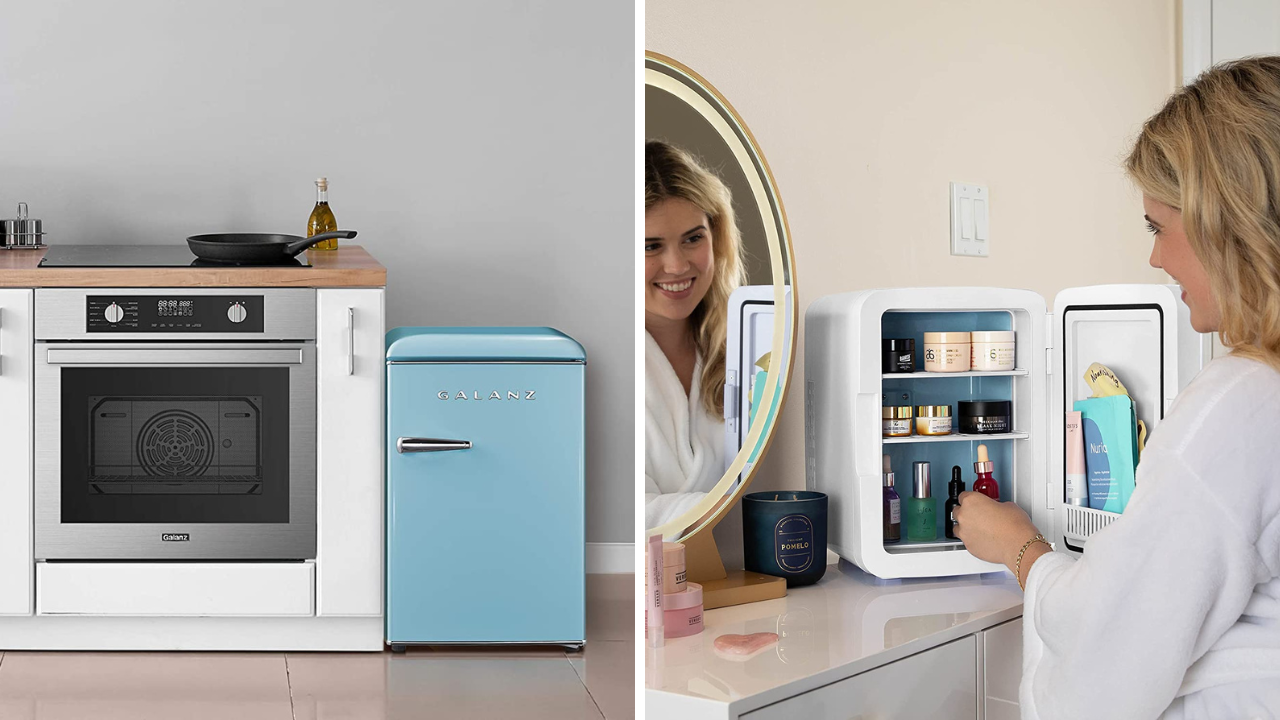
Or if you need a mini fridge for your bedroom then our article on the best Bedroom Mini Fridge may be of interest to you.
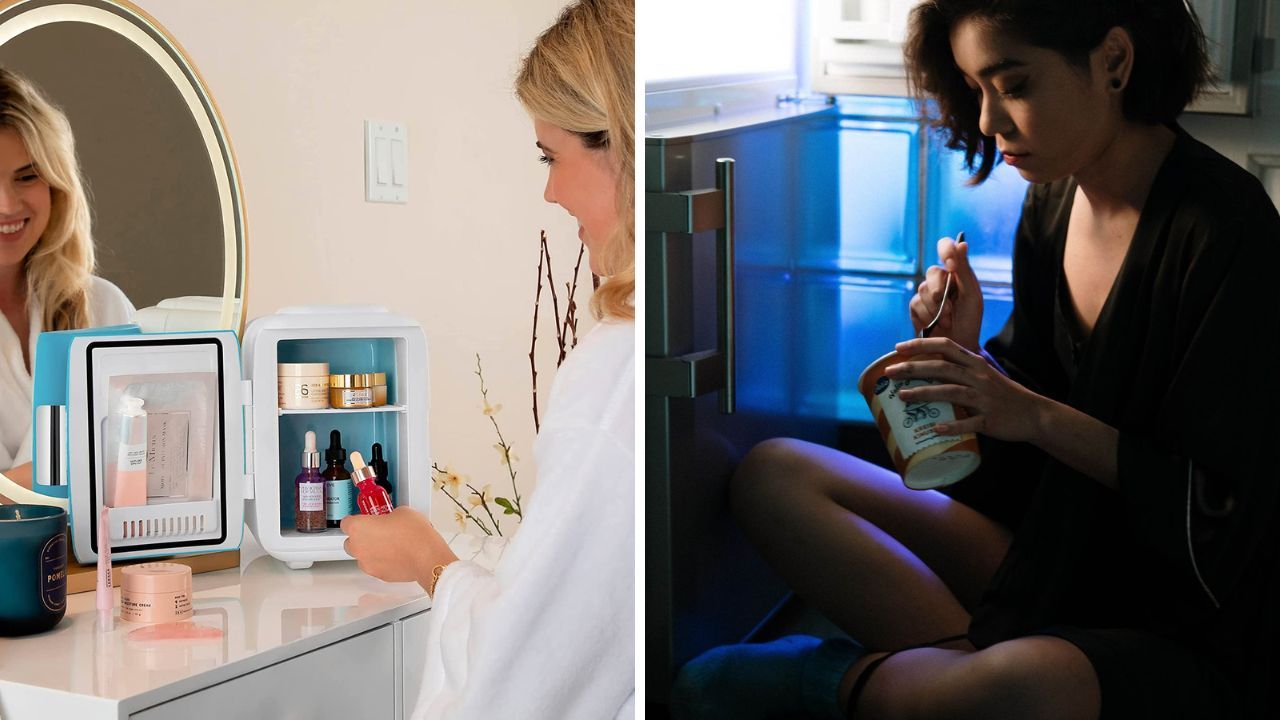
Or maybe you are interested in an Outdoor Mini Fridge, then we have an article on that too!
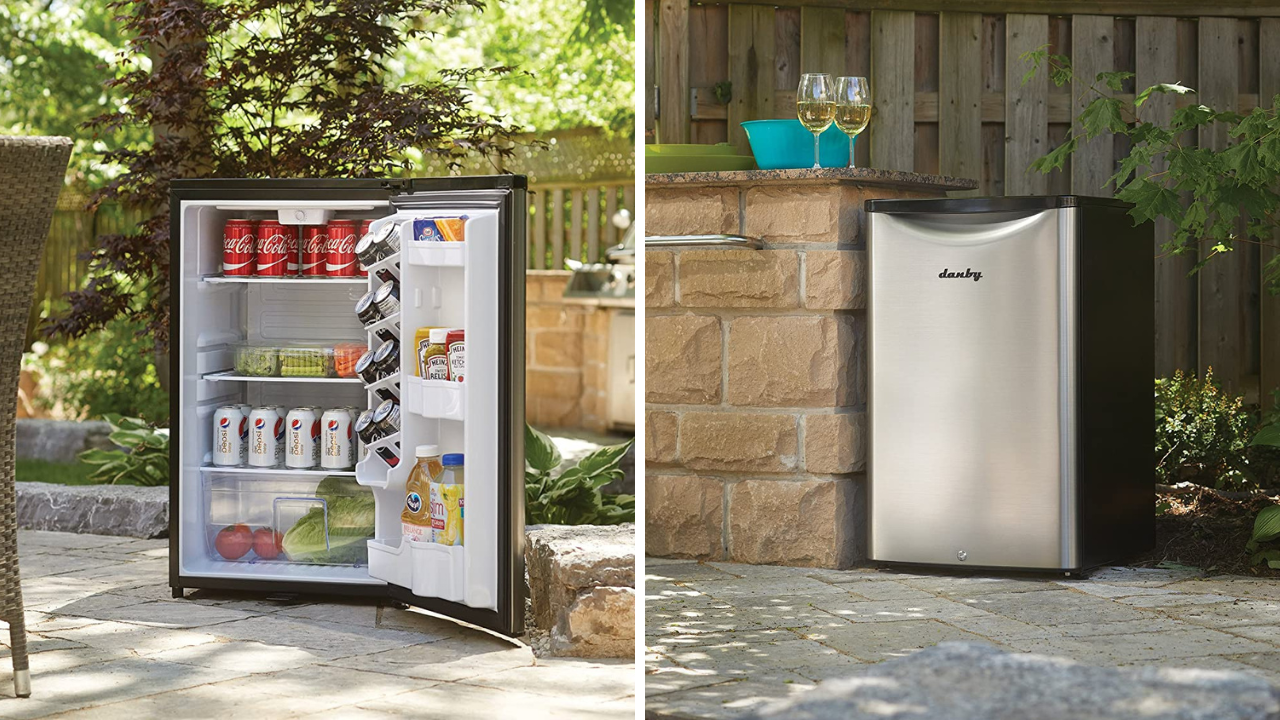
Frequently Asked Questions
Is a wine cooler the same as a mini fridge?
No, a wine cooler is not the same as a mini fridge. A wine cooler is specifically designed to store and chill wine bottles at the optimal temperature for wine storage. It is typically smaller than a mini fridge and has a temperature range from 45-65°F. A mini fridge, on the other hand, is designed to store food and beverages and has a wider temperature range from 34-45°F.
Can a mini fridge be used as wine cooler?
Yes, a mini fridge can be used as a wine cooler. A mini fridge is perfect for storing wine bottles, as it is designed to keep food and drinks at a consistent temperature. It also has adjustable shelves that can accommodate different bottle sizes, and it is small enough to fit in most spaces. Additionally, some mini refrigerators come with a temperature control setting, which can be used to set the ideal temperature for storing wine.
Is a wine cooler better than a fridge?
No, a wine cooler is not better than a fridge. A wine cooler is specifically designed to store and chill wine, while a fridge is designed to store and cool food and drinks of all kinds. Wine coolers are able to keep the temperature more consistent than a fridge, which is important for preserving the flavor and quality of wine, but a fridge is still able to do the job.










